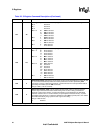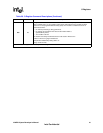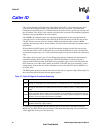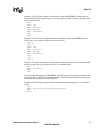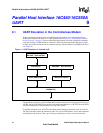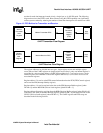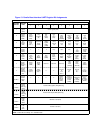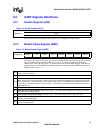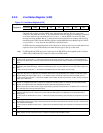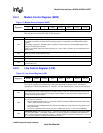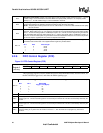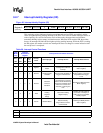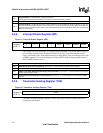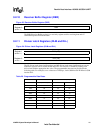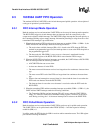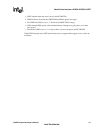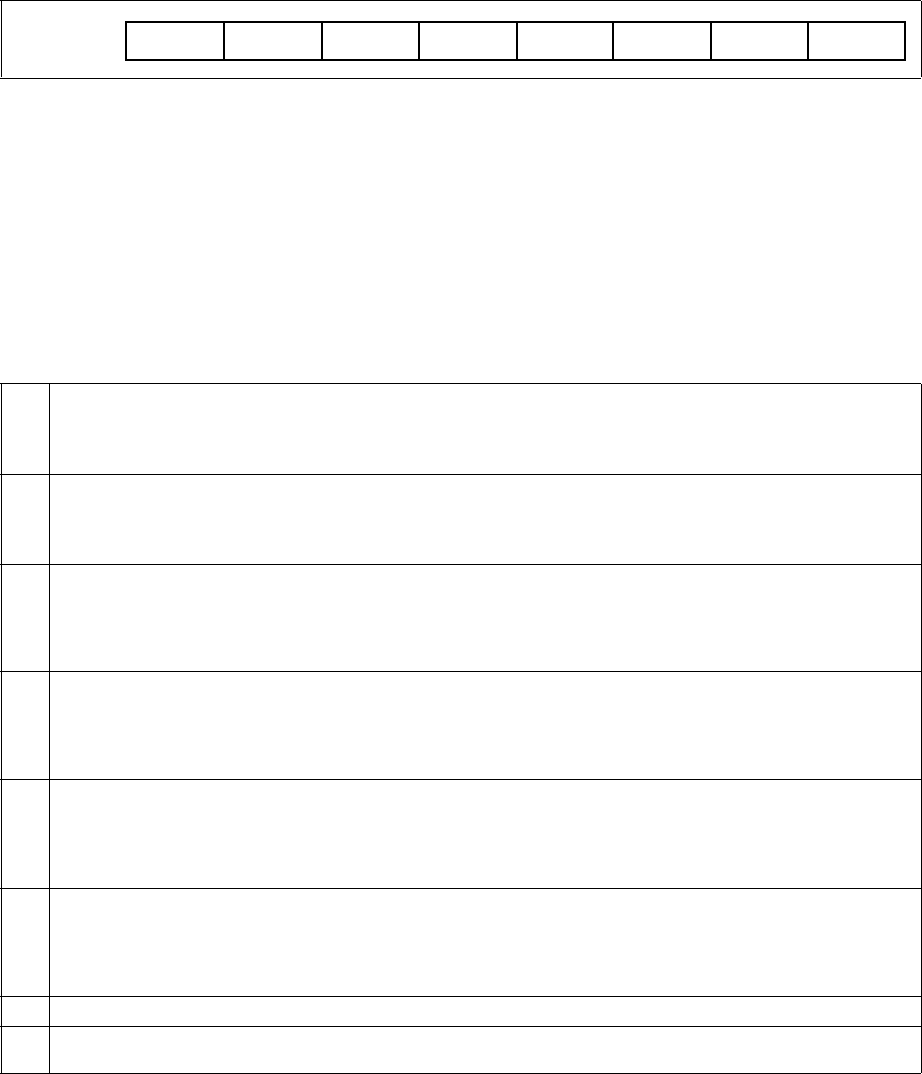
9.2.3 Line Status Register (LSR)
This read-only register provides UART status information to the host. Bits 4:1 report error
conditions. These bits are reset to ‘0’ any time the host reads this register. An interrupt is generated
to the host whenever any one of the bits (4:1) is set to ‘1’ and the RLSIE (receiver line status
interrupt) has been enabled. Bits 0, 5, and 6 provide status information for sending and receiving
data through the THR (Transmit Holding register) and the RBR (Receiver Buffer register). Bits 0,
5, 6 are reset to ‘1’ only when the host performs a specified action.
In FIFO mode, the modem keeps track of the character in which an error has occurred and does not
report the error to the DTE until the associated character gets to the top of the stack.
Note: In FIFO mode, the DTE must write a data byte in the RX FIFO by the loopback mode to write to
LSR2–LSR4. LSR0 and LSR7 cannot be written to in FIFO mode.
Figure 16. Line Status Register (LSR)
RCVR Err TEMT THRE BI FE PE OE DRRegister 5
Bit 7
Error in RCVR FIFO—In 16C450 emulation mode, this bit is always a ‘0’.
In FIFO mode, this bit is set to ‘1’ by the DCE whenever at least one parity error, framing error, or break indication has
occurred in the RCVR FIFO. This bit is cleared when the DTE reads the LSR register and there are no subsequent FIFO
errors.
Bit 6
TEMT (Transmitter Empty)—This bit is set to ‘1’ by the DCE whenever the THR (Transmit Holding register) and
transmitter shift register are empty. This bit is automatically reset to ‘0’ by the DCE whenever the host writes a byte to the
THR.
In FIFO mode, this bit is set to ‘1’ whenever the transmitter FIFO and shift register are both empty.
Bit 5
THRE (Transmitter Holding Register Empty)—This bit is set to ‘1’ whenever the THR (Transmit Holding register) is
empty. This bit is set to ‘0’ whenever the host writes data into the THR. Additionally, if the THREIE (Transmitter Holding
Register Empty Interrupt Enable) is set to ‘1’, the modem causes an interrupt to the host whenever THRE goes to ‘1’.
In FIFO mode, this bit is set to ‘1’ whenever the XMIT FIFO is empty. This bit is then reset to ‘0’ when at least one byte is
written to the XMIT FIFO.
Bit 4
BI (Break Interrupt)—This bit is set to ‘1’ whenever the received data are spaces (logic 0) for at least 2M + 3 bits (M =
start bit + # of data character bits + parity bit + # of stop bits). This bit is reset to ‘0’ whenever the host reads the LSR
register. The modem waits for the valid start bit, before again transferring data to the FIFO.
When a break occurs in FIFO mode, a single null character is placed in the RVCR FIFO. The BI bit is then set when the
zero character gets to the top of the FIFO stack.
Bit 3
FE (Framing Error)—This bit is set to ‘1’ whenever a valid stop bit (logic 1) has not been detected after the last data bit or
parity bit. This bit is reset to ‘0’ whenever the host reads the LSR register. The UART tries to re-synchronize after a
framing error.
In FIFO mode, the modem FE bit is set to ‘1’ whenever the associated framing error character has reached the top of the
stack.
Bit 2
PE (Parity Error)—This bit is set to ‘1’ whenever the received data character does not have the correct even or odd parity,
as selected by the EPS (even parity select) bit [LCR4] and the stick parity bit [LCR 5]. This bit is reset to ‘0’ whenever the
host reads the LSR register.
In FIFO mode, the modem PE bit is set to ‘1’ whenever the associated framing error character has reached the top of the
stack.
Bit 1 OE (Overrun Error)—Not supported.
Bit 0
Data Ready—This bit is set to ‘1’ whenever the modem writes a new received data character into the RBR (Receiver
Buffer register) or FIFO. This bit is reset to ‘0’ whenever the DTE reads the RBR or FIFO.



